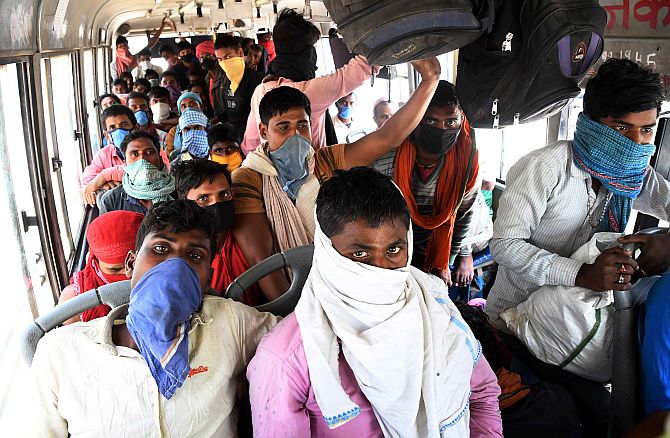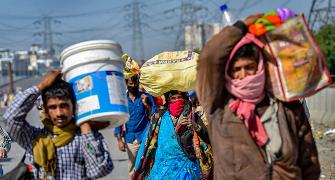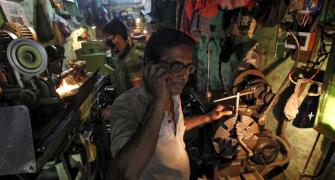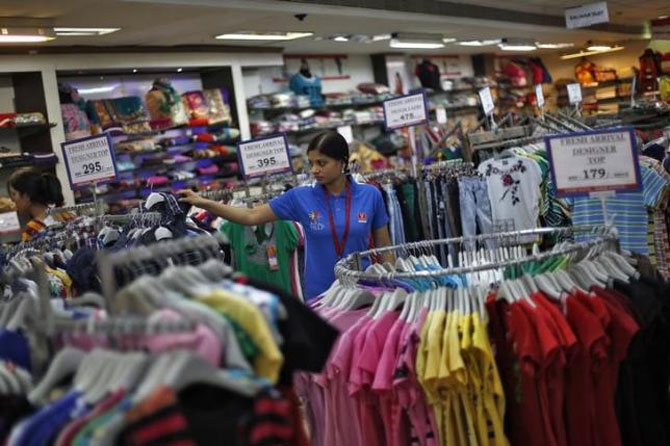The auto ancillary industry - one of the worst hit due to the labour exodus - will need at least three months to get its factories up and running.

With migrant factory workers leaving India’s major cities after a government lockdown announcement by Prime Minister Narendra Modi on March 24, manufacturing companies are staring at the challenge of getting the labour force back once operations resume on April 15.
Factory workers can only be brought back if there is assurance of advance payment and compensation, besides safety at the workplace, say manufacturers.
The auto ancillary industry - one of the worst hit due to the labour exodus - will need at least three months to get its factories up and running.
According to an ancillary supplier to the auto industry, even if the situation normalises in the next two-three months, production will not be more than 30 per cent.
“It is mainly because of job losses which will lead to lack of demand for automobiles.
"Also, the industry has been under stress for the past few months and inventories have piled up,” he said, adding that in the face of unemployment, automobiles will not be a priority.
His clients include Hero, Maruti, Tata, and Yamaha. Nearly 30 per cent of the labour force engaged in the industry has left the major cities; the rest cannot work at full capacity unless the coronavirus (Covid-19) crisis is tackled by the authorities.
According to Vinnie Mehta, director general, Automotive Component Manufacturers Association of India, the auto industry started getting impacted from the time the contagion spread in China, as it relies on imports from the country.
“For the auto industry, the impact started in January when China was impacted.
"Now, labour is a challenge. But working capital is a bigger challenge. We have to be particular about cash flows,” said Mehta.
If advance payments to migrant workers are made to get them back to work that expenditure will be met through the working capital of auto companies.
Besides, interstate movement of workers will continue to be a problem since free movement will not be allowed even if the lockdown is partially lifted on April 15.
Mehta said, “Covid-19-safe workshops should be there. Currently, the auto component manufacturing units employ thousands of workers at their factories. The workspace has to be conducive to work.”
The Indian auto component industry contributes 2.3 per cent to India’s gross domestic product and provides employment to 5 million people.
The industry witnessed a growth rate of 14.5 per cent, posting a turnover of Rs 3.95 trillion ($57.10 billion) in 2018-19 (FY19). Exports showed a growth rate of 17.1 per cent, scaling to Rs 1.06 trillion ($15.16 billion) in FY19.
The aftermarket grew by 9.6 per cent to Rs 67,491 crore ($10.1 billion), from Rs 61,601 crore ($9.2 billion) in the previous financial year.
However, for telecom equipment manufacturing companies, stalling work is not an option.
According to spokesperson at Ericsson, “Telecom equipment manufacturing has been allowed under essential services and, therefore, factories are working to cater to the demand of the mobile service providers.”
It is learnt that the movement of consignment is slow due to delayed clearances at the state level because of the 21-day lockdown.










